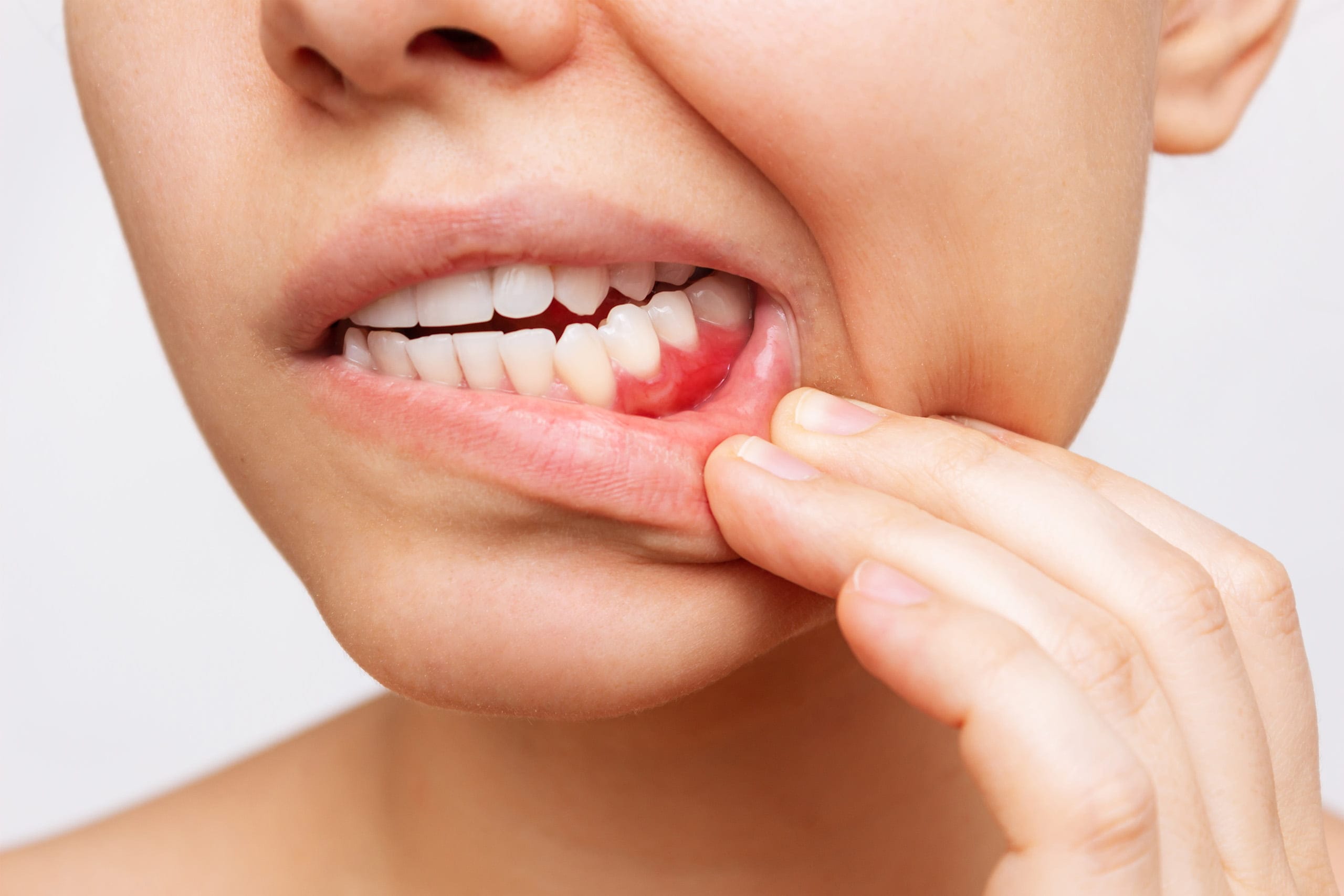Bleeding Gums – When to Take Action
You may naturally be alarmed when you notice that your gums are bleeding, especially if the bleeding comes with sharp or persistent pain. At Paramount Dental, we’re available 24/7 to help you understand not only the cause of your bleeding gums but also provide you with the right treatment.
Temporary Relief for Bleeding Gums
We recommend following the tips below. While these steps won’t fix the underlying issue, they can help reduce bleeding, swelling, and discomfort until you see a dentist:
- Apply a moist cloth: Hold a clean, damp cloth against the area for 10–15 minutes to help slow the bleeding.
- Rinse with saltwater: Mix one teaspoon of salt into a cup of warm water and gently swish to clean the area and reduce inflammation.
- Use a cold compress: Apply a cold pack to the outside of your face near the bleeding site to constrict blood vessels and ease discomfort.
- Call for professional help: Reach out to a dentist promptly if bleeding continues.
Why You Should Not Ignore Bleeding Gums
Consistent gum bleeding is often a sign of advanced gum disease (periodontitis). Without treatment, most experience some tooth loss and other serious dental and physical complications. If you are experiencing regular gum bleeding, don’t wait to get help and protect your oral health. Contact our caring dental team today!
Schedule A Bleeding Gums Consultation
Bleeding Gums FAQs
Why do my gums bleed when I brush or floss?
The most common cause of bleeding gums is gum inflammation due to plaque buildup. Other contributors include pregnancy, certain medications, dry mouth, or brushing too hard. A more gentle brushing technique, in addition to regular professional cleanings, usually reduces or eliminates this problem.
Will bleeding stop if I avoid flossing?
No. Skipping flossing often makes bleeding worse. With proper flossing technique, most people see less bleeding within 1–2 weeks as gums begin to heal.
Can bleeding gums mean gum disease?
Yes, frequent bleeding is a sign of gingivitis, which progresses to more serious gum disease known as periodontitis if left untreated. Early care of gum disease is essential as it helps prevent bone loss and improper tooth mobility.
What if my gums bleed and I’m pregnant?
Hormonal changes can increase gum sensitivity and bleeding. Professional cleanings and excellent home care are safe and recommended during pregnancy. Always share your OB’s guidance with us.
Could my medications be causing bleeding?
Yes, some medications do increase bleeding or reduce saliva production. However, you should never stop a prescription on your own — bring a current list to your dental consultation so we can tailor your care based on your medications and coordinate with your physician if needed.
How soon will treatment help?
Many patients notice improvement in a few days after a professional cleaning and consistent brushing/flossing. Deep cleaning cases may need a follow-up to confirm full resolution.
